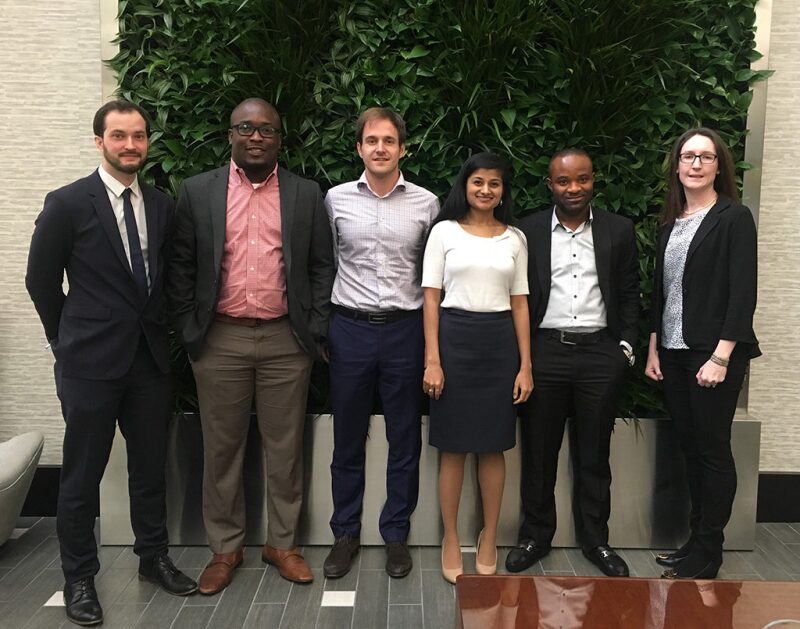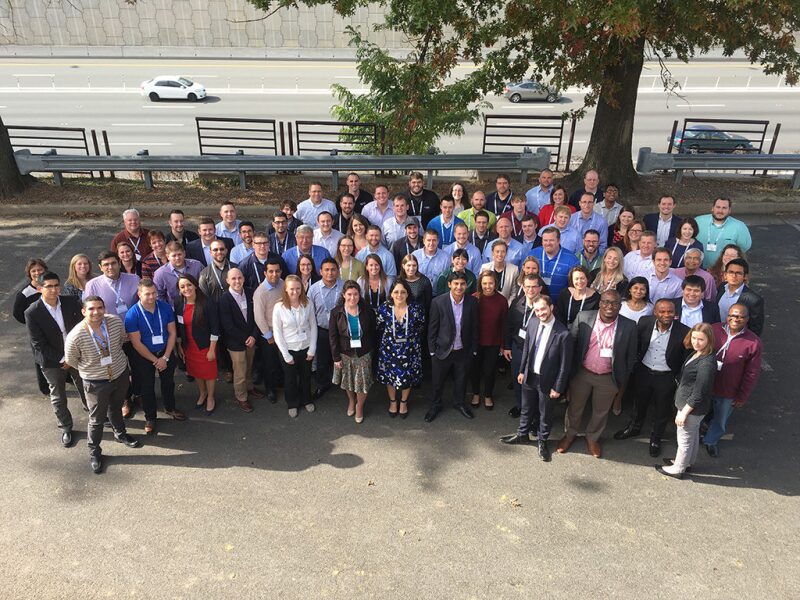When the call for applications for the Emerging Leaders Alliance (ELA) conference was announced last year, I eagerly applied as I saw this as an opportunity to network with technical professionals in societies outside of the energy industry. Although I have been very active within the energy industry through volunteering and participating in activities organized by SPE, OTC, Women’s Energy Network, and Society for Underwater Technology, I realize that my network of influence and ability to learn new concepts and ideas through word-of-mouth sharing could be improved. My drive to expand my network and information sharing is a prime example of why I help plan and attend the OTC d5 event.
The ELA conference did require some pre-work. Before attending the conference, I took the suggested TRACOM Social Styles quiz and invited about 20 colleagues, peers, mentors, and friends to provide feedback. The survey results—delivered at the conference—helped me understand how I interact with others and, in turn, how others observe and interpret our interactions together. The social styles survey evaluated my behaviors, including vocal style, body language, energy levels, adaptability, and appearance. As we learned in the Social Styles session, these behaviors play an important role as we interact with others in person and virtually throughout my professional career. The more I learn to understand others’ perceptions of my behavior, the better chance I have of making minor modifications to my approach to help ensure a successful working relationship. A good example of this is managing the TWA editorial committee with nearly 50 volunteer content creators.
Held annually since 2008, the 2016 ELA conference took place outside Washington, DC, during 9–12 November and featured content vetted by former attendees. The 3-day event struck a good balance of training, networking, and socializing. Table assignments helped encourage meeting new people instead of just sitting with attendees you already knew. Topics included “Becoming an Indispensable Leader,” “Global and Virtual Team Leadership,” “Performance Management,” and more. Most session topics built upon the previous session, and many of the instructors were able to attend sessions when they were not presenting.
[A note to event organizers: Getting speakers to stay for more than just the session is a real plus. Not only will the audience have a greater chance to meet with the speaker, but the speaker will have the benefit of reading the audience and tailoring his or her discussion to better connect with the audience, and can reference back easily to the previous speaker.]

Being a fan of creative icebreakers (Thank you, OTC The Next Wave), I was honestly pessimistic about going around the audience to introduce every single attendee and sponsoring society representative, plus their one interesting fact. But—to my pleasant surprise—the introductions were captivating, and the interesting facts came up as great conversation starters throughout the event—even on the last day! By sharing an interesting fact in addition to our place of origin and representative professional society, we were able to connect with other attendees on a level slightly deeper than name, company, and title. I enjoyed learning about people’s cooking abilities, sports interests, fondness of cats, and being an actress in a global video. If that sounds intriguing, the actress’ story and drive to become an engineer will be highlighted by the American Society of Civil Engineers in their inspiring movie Dream Big: Engineering Our World, which will play at science museums and IMAX theaters globally starting in February.
My favorite sessions of the conference covered the “Personal Vision” and Global and Virtual Team Leadership topics. The Personal Vision segment was very timely as it gave me an opportunity to reflect on my life and how things are now different from when I was fresh out of the university. I learned that my self-assessment of life shows room for improvement in the areas of career, contribution, and friends, and that I am satisfied in the areas of family, health, and spirituality.
The Global and Virtual Team Leadership session covered challenges working with and motivating a virtual team and basic “how people interact.” I have experienced all of these challenges (and more) while managing the TWA editorial committee, whose members are based globally. Email communication is our primary method with one annual meeting. And, none of our volunteers receive any compensation for their hard work. Our online newsfeed has monthly deadlines which must be met or our content becomes stagnant. As you volunteer with SPE and other organizations, you may likely face similar challenges—stay positive, keep emails upbeat, and strive to learn more about your teams. There seems to never be enough time to get to know the people on the other end of the phone line or the computer screen when reading your latest email.
My Takeaways From the Conference
Getting to know your strengths and weaknesses is critical to advancing your professional career. This applies to not only technical skill sets, but also soft skills.
Reading is the key to becoming successful in management. Good managers, especially executives, must be knowledgeable about a wide range of topics but not necessarily an expert in any one area. Read, read, read!
Treat others how they want to be treated. This is one step above “treat others how you want to be treated.”
Conduct a self-assessment of life to ensure you understand where you stand. Repeating it once a year is a good interval.
Learn about how you react when put under pressure/stress. Do you keep your composure? Do you speak more quickly and jump to conclusions?
Take time to recognize both formal and informal mentors. [Side note: When we completed this exercise during the ELA, I snapped a photo with my cell phone and sent it to a mentor from many years ago. The response I received back left me speechless.]
People react positively to good feedback; saying thanks will help encourage people to keep up those behaviors.
Use the phrase “Tell me more” more when interacting with others; then be quiet and listen, really listen.
In closing, the ELA Conference timing was perfect for me in my stage of my career—moving from the young professional stage and becoming a mid-career professional. Virtual team management, soft skills, and emotional intelligence are topics that I (and possibly you) should read more about. But—more than simply reading about these topics—I must strive to apply these learnings in my own professional interactions. As stated by Benjamin Franklin, “Tell me and I forget, teach me and I may remember, involve me and I learn.”
The 2017 ELA conference will be held 5–8 November. SPE offers a small number of stipends to help support members’ attendance at the ELA and new applications will be called for in March. Visit the ELA website for more details.

